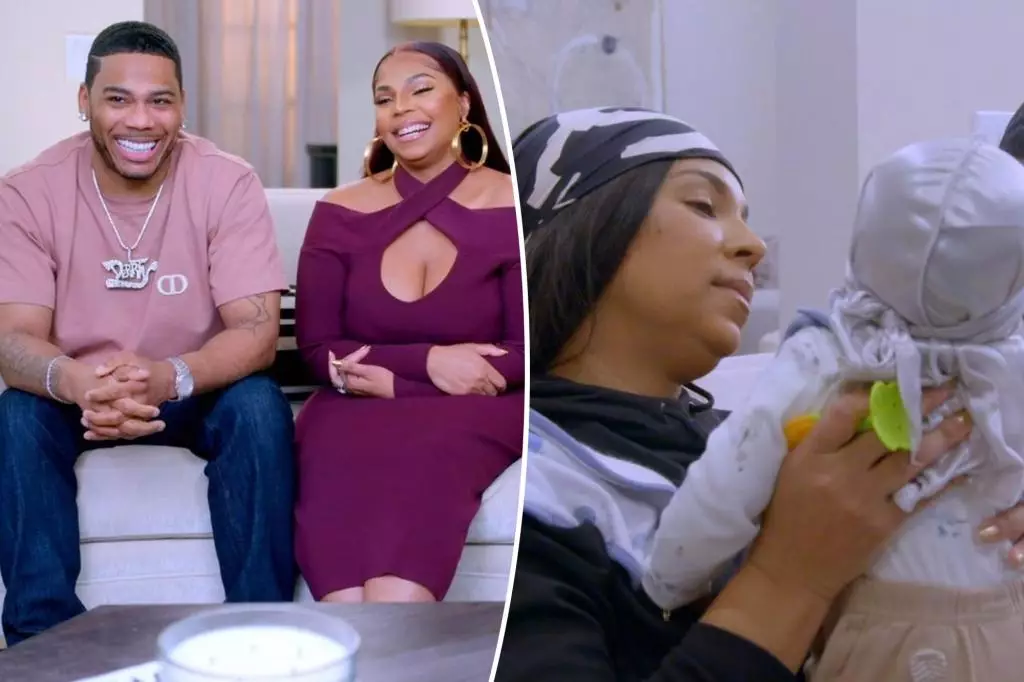In today’s world, the responsibilities of fatherhood are constantly evolving, often challenging traditional gender roles and expectations. The recent viral clip from the reality show “Nelly & Ashanti: We Belong Together” spotlights one such challenge—Nelly’s open refusal to change diapers, an act typically viewed as fundamental parenting duty across both mothers and fathers. At 50, the rapper bluntly stated to Ashanti, his wife and mother of their child, that diaper changing is off his list of responsibilities. This candid admission invites a broader discussion about modern fatherhood, personal boundaries, and shared domestic labor. While Nelly’s attitude might feel outdated or even irresponsible to some, it also reflects a nuanced negotiation of roles within high-profile, busy households.
Personal Boundaries vs. Parenting Partnership
Nelly’s refusal largely stems from an honest self-assessment of his own parental limits. He candidly told Ashanti, “I just ain’t changing no diaper” and seems unapologetic about this boundary. This contrasts sharply with the usual societal script where fathers are expected to share evenly in childcare tasks. Ashanti’s visible frustration—sighing, rolling her eyes, and pointing out that she is overwhelmed—signifies the tension that arises when parenting responsibilities are unevenly distributed. From a partnership standpoint, this is a difficult dynamic. Parenting, by nature, demands teamwork. When one partner openly shirks fundamental duties without compromise or meaningful alternative support, resentment can naturally build. However, Nelly’s situation is more layered than it appears on the surface.
The Realities of Celebrity Parenting and Support Systems
Unlike many parents juggling childcare without external help, Nelly disclosed that he hires nannies to assist with their 11-month-old son, Kareem. This detail offers context: while Nelly may avoid diapers personally, he financially supports additional caregiving. It raises an important point about how wealth and access to resources shape parenting roles. Celebrity dads can delegate some traditional tasks, which may lead to misinterpretations about involvement and care. Nelly explains his approach as “living vicariously” through Ashanti’s hands-on role and providing whatever she may need. Still, this arrangement provokes debate about the emotional and physical presence fathers should exhibit, beyond paying for help.
Public Perception and Gendered Criticism
The backlash Nelly received on social media underscores deep-rooted societal expectations that men, especially fathers, should engage actively in all facets of child-rearing. Viewers harshly criticized him, calling Ashanti a “married single mom,” highlighting how uneven parenting can often place disproportionate burdens on mothers regardless of marital status. This scrutiny reflects a broader cultural crisis: while fathers are increasingly expected to share domestic labor, lapses—even ones mitigated by wealth—can quickly become lightning rods for public judgment. Nelly’s comments stirred controversy by underscoring how parenting roles are still a contentious negotiation, especially when juxtaposed against traditional ideals of masculinity and fatherhood.
The Nuance of Family and Parenting Evolution
Beyond the controversy, the couple’s family dynamics defy easy categorization. Nelly is no stranger to fatherhood; he’s a father to four children, some of whom he adopted under tragic circumstances. His experience may explain a shifted approach, viewing parenting through a different lens than a first-time dad navigating every diaper and midnight cry. Furthermore, Nelly and Ashanti’s long-standing relationship—and the fact they married in secret after years together—adds layers to understanding their private family management style. It is telling that Ashanti admits caregiving is “a lot” to handle, a sentiment almost universally felt by new parents, regardless of their public profile or available help.
Rethinking Parental Roles in the 21st Century
Nelly’s unapologetic stance forces an uncomfortable but necessary conversation about parenting expectations. While outright rejection of hands-on care seems jarring, his clarity also challenges the idealized image of the “always-involved” father, acknowledging that not all dads operate at the same intensity or interest level. The intersection of gender norms, economic ability, and individual limits means parenting responsibilities are unlikely to ever be evenly distributed across the board. In fact, honest dialogues like this—though messy and controversial—are essential to redefining what partnership means in family life, encouraging couples to negotiate roles that fit their realities honestly rather than conforming to social pressures.
In this respect, Nelly’s approach, however flawed it may seem, underscores an ongoing shift in the culture of fatherhood, where financial support and emotional presence do not always translate into equal hands-on parenting. It forces us to ask how society can better recognize diverse forms of parental involvement—beyond diapers—and hold all parents accountable to their contributions, however they manifest.

Leave a Reply